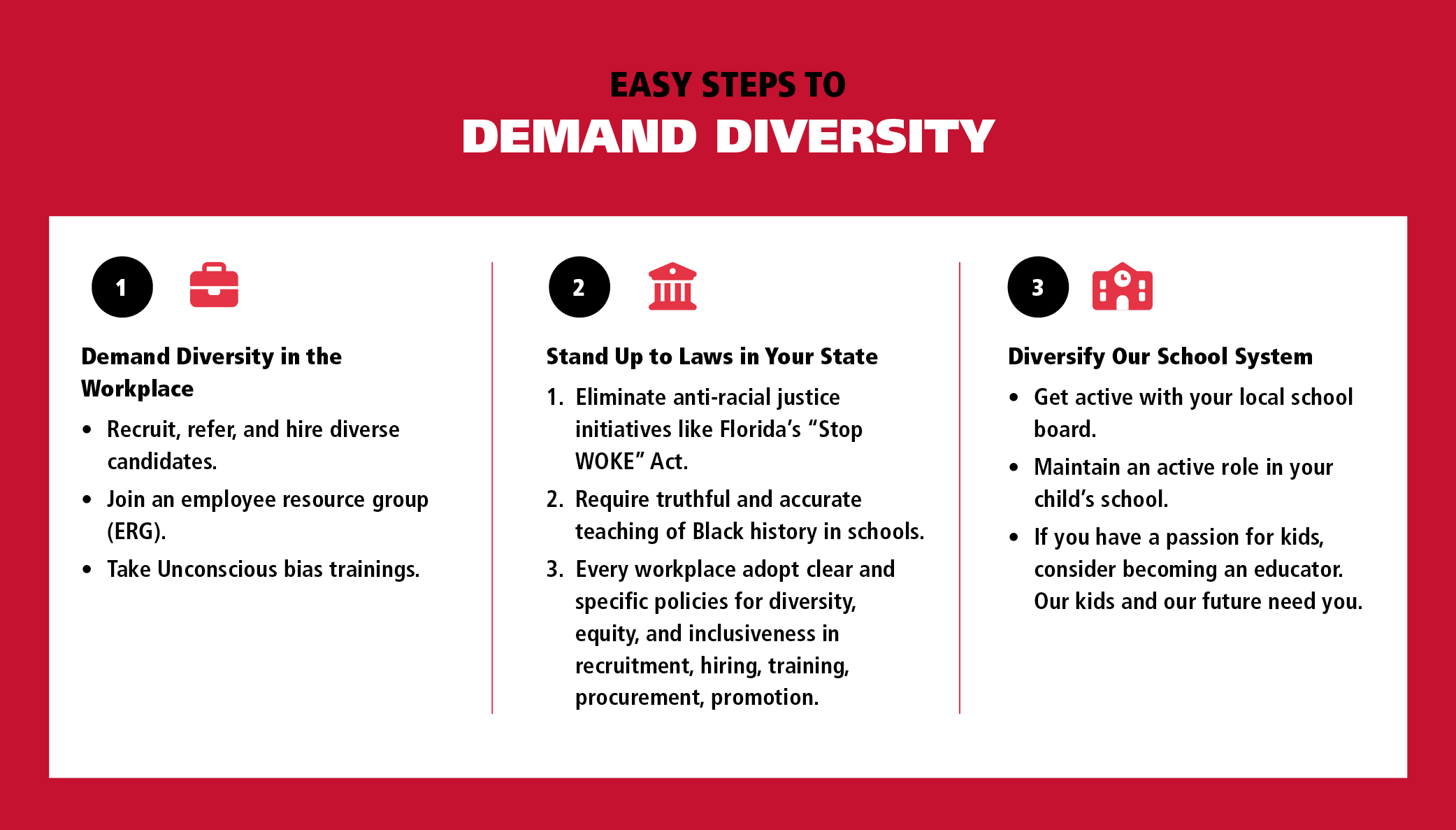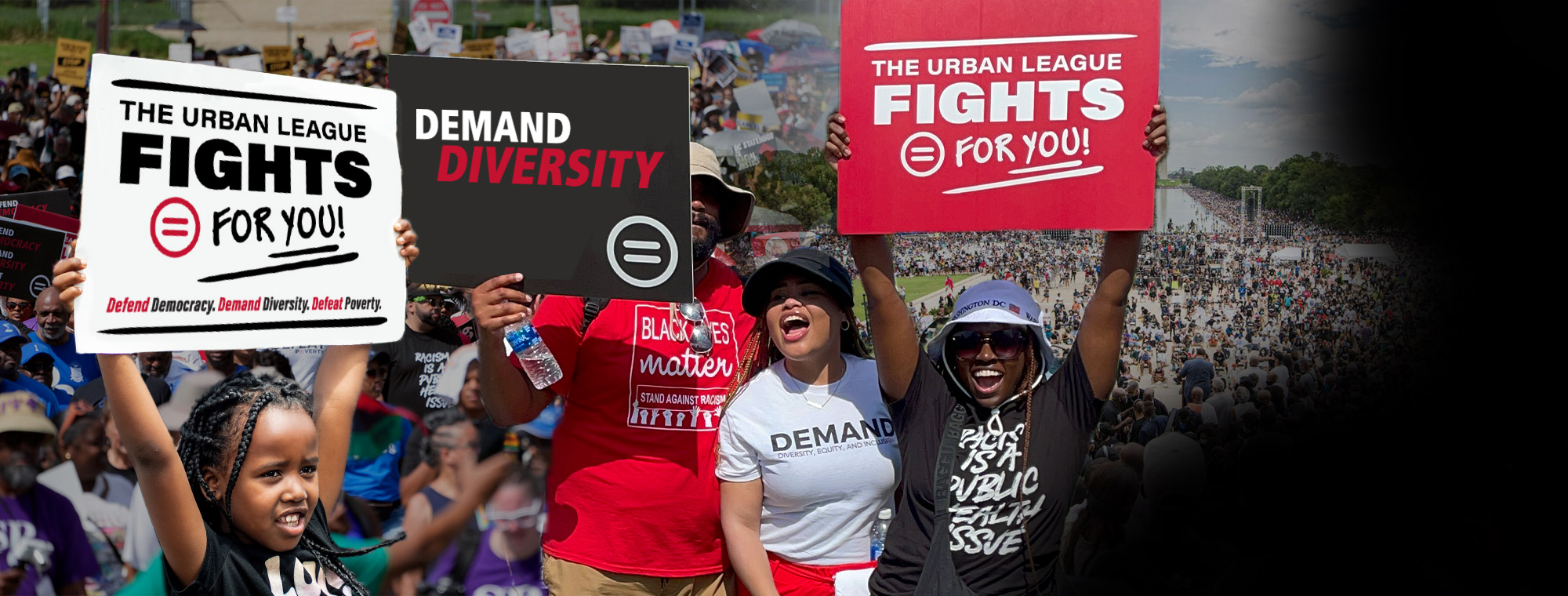Get Involved
Diversity, equity, and inclusion programs are under attack. But we have the power to put pressure on those systems that are actively working against us. We encourage you to explore all the ways you can take a stand and demand diversity at your job, school, and community.

The Issues
For Black Americans and other communities of color, diversity, equity, and inclusion initiatives have been transformative for so many of us who have been overlooked and under-recruited because of bias.
These programs are a pathway to life-changing career opportunities that show our people that their dreams are achievable. They bring us to the table to create products and services that improve and, in some professions, save our lives.
When we saw that we are demanding diversity, we are fighting to have us represented across all American institutions to combat:
Racial Discrimination: Systemic racism and racial bias lead to discrimination in hiring, promotions, pay, and educational opportunities for people of color.
Microaggressions: Microaggressions, subtle comments or actions that convey discriminatory attitudes, can contribute to a hostile and unwelcoming atmosphere for people of color.
Wage Gaps: Communities of color often experience wage gaps, earning less than their white counterpartsfor the same work, which can contribute to economic disparities.
Educational Equity: Minority communities often have reduced access to quality education, including underfunded schools, limited access to advanced courses, and disparities in discipline and resource allocation.
School-to-prison Pipeline: Students of color, mainly Black and Latino students, are more likely to face harsh disciplinary measures, leading to the school-to-prison pipeline.
Lack of Representation: Underrepresenting people of color in leadership positions, textbooks, media, and decision-making roles can reinforce marginalization and limit opportunities.
Limited Access to Healthcare: People of color may have limited access to quality healthcare, leading to health disparities and unequal outcomes.
Housing Discrimination: Discriminatory housing practices, such as redlining, can limit access to safe and affordable housing in predominantly white neighborhoods.
Criminal Justice Disparities: People of color are disproportionately targeted by law enforcement and face harsher sentences and conditions within the criminal justice system.
Cultural Appropriation: Appropriating cultural elements from marginalized communities without understanding or respect can perpetuate stereotypes and cultural insensitivity.
Cultural Competency: Institutions often lack the cultural competence needed to effectively address the unique needs of diverse communities.


